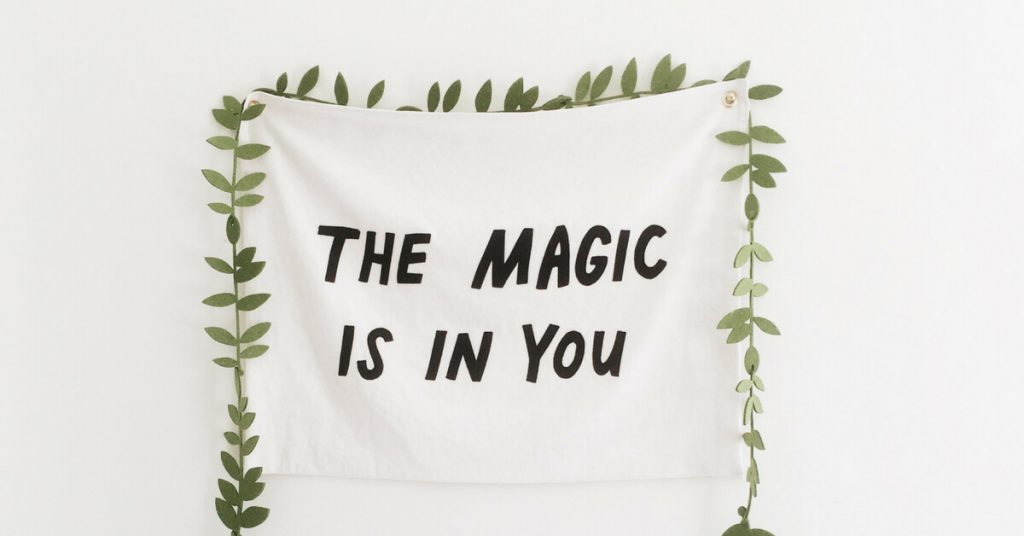By: Rachel Doherty
What started as a weight loss goal became a journey of self-care. 20kg later, and its not just my body that’s changed, but my whole life!
I’d put on weight through stress. As my work became more sedentary, my weight increased too. But it was the stress that had the most impact on my life.
“You have to make the decision to lose weight in your head, not your stomach.” – Jean Nidetch
Too much stress leads to burnout, so dealing with stress is important for our mental health and physical wellbeing. But that’s easier said than done.
If your life is anything like mine, it’s full of demands. Work, picking up kids, dropping them off, cooking, cleaning, hassling homework and figuring out what’s for dinner. We can’t get rid of all the things that cause stress, so we have to learn to cope with it. That’s where self-care comes in.
I’ve been grappling with stress for many years. Just when I think I can’t cope with another thing going wrong, it seems to. It’s taken a toll on my physical health and emotional wellbeing.
But this time it had reached a point where I knew I had to change. My weight was hovering near “obese” and I was feeling miserable most of the time.
All I could focus on was losing weight. I thought if I could get in a healthy weight range, that would solve everything. The trouble was finding the drive to lose the weight. It turns out I’m not as mentally strong as I’d like to think.
But taking it one day at a time, over six months I transformed my life. I lost a quarter of my body weight. I set up daily habits to make life feel calmer and more relaxed. I built some margin into my life so I’m not in such a rush. What began as a weight loss campaign became a self-care metamorphosis.
10 self-care strategies that will change your life
This is not a final list of self-care strategies. There are many more, but these are the ones that have worked for me. For each strategy, I’ll give you a bit of an explanation of how it helps with managing stress, and how I’ve made it work for me.
1. Eat well
Our bodies need food, but in the western world, it’s too easy to have too much and not the right sorts of food. Stress releases hormones that change our metabolism, complicating our relationship with food. That’s on top of the changes that happen as you age. For me it led to a gradual increase in weight over the last few years that did nothing for my health.

Here’s how I got on top of eating well:
I got help. I saw a dietician and made myself accountable, tracking my weight and measurements systematically.
I stuck to an eating plan. I focus on having five serves of meat and vegetables a day and two serves each of fruit, dairy and carbs. A serving is much smaller than you think, except in the vegetables, so you have to plan well.
Mapping meals for the week. I choose a week’s worth of dinners when I do the shopping, so I know I’ve got healthy meals ready to go. Each morning I check what commitments I have and plan how I’ll fit my eating plan around that. It’s part of my morning routine I’ll explain further on.
I stopped emotional or mindless eating. I try to avoid having those things in the house that I know I will scoff. I’ve made things I used to have every day, treats I go out for now and then. Like a glass of wine or a piece of cake.
I focused on the social side of food. Those treats are usually with a friend now, not to soothe myself after a difficult day. I enjoy eating with my family and savouring the taste of good food.
2. Exercise every day
Physical activity helps breakdown those unhealthy stress hormones and releases calming ones. Wearing your body out as much as your mind is also good for your sleep cycle at the end of the day.
Some exercise ideas that work for me:
Do something you don’t hate. Everyone tells me exercise is addictive. I’m yet to find that. I exercise because I need to, not because I love it. Walking works fine if that’s all you want to do. You don’t need to work out at a crazy pace, just walk as fast as you can and give yourself a decent distance. I’ve got a 6km loop I do most days. Although now I often run part of it to try and finish it quicker.
Mix it up. Our bodies become very efficient when we do the same exercise over and over again. You have to find new ways to push your body a bit harder when it all feels too easy. Like walking up stairs or climbing that hill you’ve been dreading.
Get into a daily habit. I either exercise every day or barely at all. I’ve been learning that I have to knuckle down and build fitness into my daily routine or I tend to skip it.
Do a bit of strength work. I have a couple of strength workouts I can do from home using a few dumbells and a kettlebell. I can do them when I like, without anyone seeing me groan with the 4kg weight. The workouts on Dare Bee have been a good find for me.
3. Create a good sleep routine
Stress impacts on our ability to sleep. Either falling asleep, staying asleep or waking refreshed. We can help our bodies prepare to sleep by having a series of steps we work through to shut down for the night.
My sleep routine is pretty simple. A quick prep for tomorrow, a shower, a read in bed and then it’s lights out for me around 10pm. The prep for tomorrow takes the stress out of the early morning. I check my diary so I know what the day will look like. I pick out what I’m going to wear and get anything ready I’ll need for a quick escape. Then I shutdown my computer and tidy my desk.
The current wisdom is that we should banish screens from the bedroom. I find reading before bed focuses my mind rather than allowing wandering thoughts to rattle around my brain. You have to do what works for you.
“Having the right attitude can convert a negative stress into a positive one.” – Hans Selye
4. Smooth out your mornings
The busier your morning, the more likely you’re flooding your body with stress hormones from the minute you wake up. Letting your body wake up slowly is one of those self-care essentials we all need to master.

Mornings are still pretty crazy in our house, so here’s how I make my mornings work:
Give yourself time to wake up. Having a few moments to lie in bed before getting up helps me to fully wake and stay in control. I have a wake up time and a get going time to give myself that space.
Focus on yourself before everyone else. I used to rush around sorting everyone else out and then have hardly anytime to get myself ready. These days I do it the other way around. I take care of me first, unless I know I’ve got a slower day and can afford to push everyone else out of the house and take my time.
Make time for breakfast. It might only be a muffin and a cup of tea, but refueling your body after the overnight fast is essential. Think through the day. Map out what lies ahead for the day and get some positive self-talk happening. You can do this!
5. Make a refuge
We all need somewhere we can retreat to and feel at peace with the world. Hide from it even. If you’re going to stay on top of stress, you need to know that when you get home you’re in your happy place and the pressure is off. Or at least lowered.
My tips for making your home a refuge are:
Declutter. We all tend to accumulate stuff, but keeping your house tidy helps to create a sense of calm. If decluttering is too much of challenge for the whole house, choose one room to keep in order.
Create your “nice” space. Set up one room that everyone knows is your hiding place. Choose nice linen, a comfy chair, pretty cushions, you name it. Make it feel welcoming to you.
Give yourself time to retreat. Let yourself hide out when life feels overwhelming, even if it’s for a few minutes. Sometimes you might have to wait until the kids are in bed or you’ve finished the day’s tasks, but we all deserve that time to ourselves.
6. Make time for your health checks
I have been terrible at doing this. Just about every health check I have is a year or two late. This year I’ve been working on getting them in order. A general check up with my doctor and a blood test to check all the basics. The cancer screening and an eye check. I still need to tick off a few more, including a trip to the dentist.
7. Map out your week
Life seems to get busier and busier to the point that most of us overcommit. If we try and do that for too long, we end up depleting our energy stores and hitting a wall. That’s burnout. Overcommitment is one of the big causes of stress in most people’s lives.
Here’s what I’ve been learning to keep life less busy:
Use a diary. Whether it’s digital or paper-based, seeing your time mapped out gives you a sense of whether you’re not busy, too busy or just right. It’s hard to book in more things if it already looks full.
Block out some margins. When your book in an appointment, add the time it will take you to get there too. Book in the times you’re doing things like exercising, doing hobbies or spending time with your family, so you’re not tempted to fill them up too.
Visualise your week. On Sunday, look over the week and get a feel for the high and low points. Times when you know you’ll be under the pump. That’s when I’ll think about other ways I can make life easier, like throwing a meal in the slow cooker or cracking out some leftovers.
8. Sort through your emotions
I’m a firm believer that we have three parts to our ‘self’ – the physical, emotional and spiritual. Each of them needs nurturing and care. A failing in one area will impact on the others.
Our emotional wellbeing relies on positive self-talk, a good view of ourselves and some sense of hope about where life is going. The only way we can really manage that is to unpack our thoughts and feelings on a regular basis.

My go-to’s for emotional wellbeing are:
Having lunch with a friend. Having a few friends to download on and share your feelings with makes even the toughest life bearable. Cultivate those friendships and give back when you’re going well.
Press the rewind button. At the end of the day, or on the weekend, I’ll often rewind the week as I go for a walk and think through how it went. What I did well, what I didn’t do, what I could improve and whether any of that matters. This is a time to let your positive self-talk get your mind into the right gear!
Get some guiding quotes. When life feels difficult, or our negative thoughts get the better of us, it’s good to have one or two sayings you can turn to. One I find helpful is from Eleanor Roosevelt, who said that we should meet what comes our way with courage and the best of ourselves.
Journal. Writing down what’s going well, what scares you and what you hope for can give clarity and a sense of peace.
9. Book something to look forward to
Anticipation is good for our mental health. It gives us something to plod through the days that lie before us. So plan that holiday, the weekend get away, or book tickets to a show. Give yourself something to focus on as you face each day.
I find I can’t deliver on all my hopes, so if something falls through I find a substitute.
10. Do something for fun
Fun is about letting your inner child reign and your creativity flow. We all need an “outlet activity” that helps our mind and body unwind from the work of life. It might be a book club, a sporting team, that family movie night – it doesn’t matter, but it can’t be something you do for any other purpose than to have fun.
I’m still struggling to work this one out. It may be that a few small things that add up to something more. Things I’ve enjoyed in the past aren’t so appealing now.

So as I work on this, I know that anything I do that I don’t have to do, and that isn’t fun, has to go. I’ve been getting better at saying no to things that I find draining rather than joyful.
Of course, some people could need to put all these strategies in place. Don’t do it all at once. That sort of change is overwhelming! Pick one or two things to start on this week.
If like me, your weight is an issue, then I’d start with eating better, getting some exercise and putting a sleep routine in place. The other things will fall into place in time. Most of these strategies have taken months for me to make habits, so don’t rush the process. Believe me, if I can do this, you’ll have it licked in no time!
Remember that self-care is something we all need to practice, regardless of how stressful our life is.
Article supplied with thanks to Tweens 2 Teen.
About the Author: Rachel Doherty helps those living and working with young people, through supervision, coaching, speaking and consulting.
